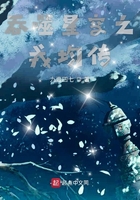*199*
TO VIOLETS
Welcome, maids of honour, You do bring In the Spring;
And wait upon her.
She has virgins many, Fresh and fair;
Yet you are More sweet than any.
You're the maiden posies;
And so graced, To be placed 'Fore damask roses.
--Yet, though thus respected, By and by Ye do lie, Poor girls, neglected.
*200*
THE APRON OF FLOWERS
To gather flowers, Sappha went, And homeward she did bring Within her lawny continent, The treasure of the Spring.
She smiling blush'd, and blushing smiled, And sweetly blushing thus, She look'd as she'd been got with child By young Favonius.
Her apron gave, as she did pass, An odour more divine, More pleasing too, than ever was The lap of Proserpine.
*201*
THE LILY IN A CRYSTAL
You have beheld a smiling rose When virgins' hands have drawn O'er it a cobweb-lawn:
And here, you see, this lily shows, Tomb'd in a crystal stone, More fair in this transparent case Than when it grew alone, And had but single grace.
You see how cream but naked is, Nor dances in the eye Without a strawberry;
Or some fine tincture, like to this, Which draws the sight thereto, More by that wantoning with it, Than when the paler hue No mixture did admit.
You see how amber through the streams More gently strokes the sight, With some conceal'd delight, Than when he darts his radiant beams Into the boundless air;
Where either too much light his worth Doth all at once impair, Or set it little forth.
Put purple grapes or cherries in-
To glass, and they will send More beauty to commend Them, from that clean and subtle skin, Than if they naked stood, And had no other pride at all, But their own flesh and blood, And tinctures natural.
Thus lily, rose, grape, cherry, cream, And strawberry do stir More love, when they transfer A weak, a soft, a broken beam;
Than if they should discover At full their proper excellence, Without some scene cast over, To juggle with the sense.
Thus let this crystall'd lily be A rule, how far to teach Your nakedness must reach;
And that no further than we see Those glaring colours laid By art's wise hand, but to this end They should obey a shade, Lest they too far extend.
--So though you're white as swan or snow, And have the power to move A world of men to love;
Yet, when your lawns and silks shall flow, And that white cloud divide Into a doubtful twilight;--then, Then will your hidden pride Raise greater fires in men.
*202*
TO MEADOWS
Ye have been fresh and green, Ye have been fill'd with flowers;
And ye the walks have been Where maids have spent their hours.
You have beheld how they With wicker arks did come, To kiss and bear away The richer cowslips home.
You've heard them sweetly sing, And seen them in a round;
Each virgin, like a spring, With honeysuckles crown'd.
But now, we see none here, Whose silvery feet did tread And with dishevell'd hair Adorn'd this smoother mead.
Like unthrifts, having spent Your stock, and needy grown You're left here to lament Your poor estates alone.
*203*
TO A GENTLEWOMAN, OBJECTING TO HIM HIS
GRAY HAIRS
Am I despised, because you say;
And I dare swear, that I am gray?
Know, Lady, you have but your day!
And time will come when you shall wear Such frost and snow upon your hair;
And when, though long, it comes to pass, You question with your looking-glass, And in that sincere crystal seek But find no rose-bud in your cheek, Nor any bed to give the shew Where such a rare carnation grew:-
Ah! then too late, close in your chamber keeping, It will be told That you are old,--
By those true tears you're weeping.
*204*
THE CHANGES: TO CORINNA
Be not proud, but now incline Your soft ear to discipline;
You have changes in your life, Sometimes peace, and sometimes strife;
You have ebbs of face and flows, As your health or comes or goes;
You have hopes, and doubts, and fears, Numberless as are your hairs;
You have pulses that do beat High, and passions less of heat;
You are young, but must be old:--
And, to these, ye must be told, Time, ere long, will come and plow Loathed furrows in your brow:
And the dimness of your eye Will no other thing imply, But you must die As well as I.
*205*
UPON MRS ELIZ. WHEELER, UNDER THE NAME OF
AMARILLIS
Sweet Amarillis, by a spring's Soft and soul-melting murmurings, Slept; and thus sleeping, thither flew A Robin-red-breast; who at view, Not seeing her at all to stir, Brought leaves and moss to cover her:
But while he, perking, there did pry About the arch of either eye, The lid began to let out day,--
At which poor Robin flew away;
And seeing her not dead, but all disleaved, He chirpt for joy, to see himself deceived.
*206*
NO FAULT IN WOMEN
No fault in women, to refuse The offer which they most would chuse.
--No fault: in women, to confess How tedious they are in their dress;
--No fault in women, to lay on The tincture of vermilion;
And there to give the cheek a dye Of white, where Nature doth deny.
--No fault in women, to make show Of largeness, when they're nothing so;
When, true it is, the outside swells With inward buckram, little else.
--No fault in women, though they be But seldom from suspicion free;
--No fault in womankind at all, If they but slip, and never fall.
*207*
THE BAG OF THE BEE
About the sweet bag of a bee Two Cupids fell at odds;
And whose the pretty prize should be They vow'd to ask the Gods.
Which Venus hearing, thither came, And for their boldness stript them;
And taking thence from each his flame, With rods of myrtle whipt them.
Which done, to still their wanton cries, When quiet grown she'd seen them, She kiss'd and wiped their dove-like eyes, And gave the bag between them.
*208*
THE PRESENT; OR, THE BAG OF THE BEE:
Fly to my mistress, pretty pilfering bee, And say thou bring'st this honey-bag from me;
When on her lip thou hast thy sweet dew placed, Mark if her tongue but slyly steal a taste;
If so, we live; if not, with mournful hum, Toll forth my death; next, to my burial come.
*209*
TO THE WATER-NYMPHS DRINKING AT THE
FOUNTAIN
Reach with your whiter hands to me Some crystal of the spring;
And I about the cup shall see Fresh lilies flourishing.
Or else, sweet nymphs, do you but this--















